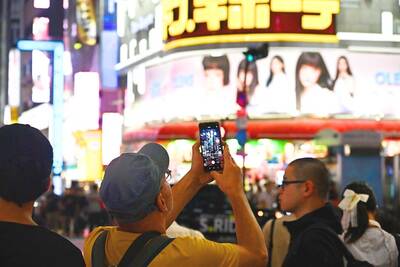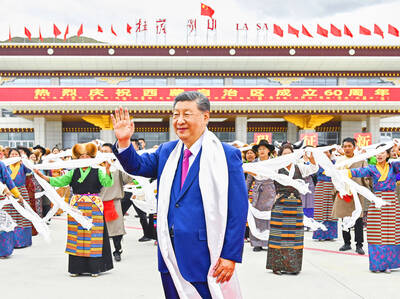Indians and Malaysians are leading a tourist rush to Thailand after it relaxed entry rules, with total arrivals topping 2 million since the start of the year and providing a fillip to the Southeast Asian nation’s sluggish economy.
Foreign tourist arrivals totaled 2.03 million from Jan. 1 to Sunday, deputy government spokeswoman Traisuree Taisaranakul said in a statement on Monday.
Travelers from India, Malaysia, the UK, Singapore and the US topped the list, Traisuree said.
Thailand’s tourism industry, which was nearly destroyed during the COVID-19 pandemic, expects average monthly arrivals to surge to about 1.5 million with the country scrapping a pre-travel registration and mandatory medical insurance from Friday.
Southeast Asia’s second-largest economy has rolled back most of the pandemic-era curbs on travel and businesses, and last week lifted a mask mandate, while allowing pubs and bars to return to normal operating hours.
The measures are part of efforts to shore up an economy that depended on tourism to generate about 12 percent of GDP before the pandemic.
A weaker currency and the recent legalization of cannabis might also help bring back more tourists, Thai Minister of Tourism and Sports Phiphat Ratchakitprakarn said last week.
The ministry has set a “conservative” forecast to attract 7.5 million foreign arrivals this year, based on the assumption that Chinese tourists would remain absent due to that country’s “zero COVID-19” policy and factoring in the war in Ukraine, he said.
While Thailand is unlikely to see the levels of tourist arrivals that it had prior to the pandemic without Chinese visitors, a gradual easing of travel curbs for students and business executives, and resumption of flights between the two countries offered optimism of the return of holidaymakers in the second half of this year, Traisuree said in a statement on Sunday.
Chinese tourists made up almost 30 percent of the total of 40 million tourists Thailand received in 2019, the year before the pandemic, official data showed.

Ten cheetah cubs held in captivity since birth and destined for international wildlife trade markets have been rescued in Somaliland, a breakaway region of Somalia. They were all in stable condition despite all of them having been undernourished and limping due to being tied in captivity for months, said Laurie Marker, founder of the Cheetah Conservation Fund, which is caring for the cubs. One eight-month-old cub was unable to walk after been tied up for six months, while a five-month-old was “very malnourished [a bag of bones], with sores all over her body and full of botfly maggots which are under the

BRUSHED OFF: An ambassador to Australia previously said that Beijing does not see a reason to apologize for its naval exercises and military maneuvers in international areas China set off alarm bells in New Zealand when it dispatched powerful warships on unprecedented missions in the South Pacific without explanation, military documents showed. Beijing has spent years expanding its reach in the southern Pacific Ocean, courting island nations with new hospitals, freshly paved roads and generous offers of climate aid. However, these diplomatic efforts have increasingly been accompanied by more overt displays of military power. Three Chinese warships sailed the Tasman Sea between Australia and New Zealand in February, the first time such a task group had been sighted in those waters. “We have never seen vessels with this capability

A Japanese city would urge all smartphone users to limit screen time to two hours a day outside work or school under a proposed ordinance that includes no penalties. The limit — which would be recommended for all residents in Toyoake City — would not be binding and there would be no penalties incurred for higher usage, the draft ordinance showed. The proposal aims “to prevent excessive use of devices causing physical and mental health issues... including sleep problems,” Mayor Masafumi Koki said yesterday. The draft urges elementary-school students to avoid smartphones after 9pm, and junior-high students and older are advised not

Chinese President Xi Jinping (習近平) attended a grand ceremony in Lhasa yesterday during a rare visit to Tibet, where he urged “ethnic unity and religious harmony” in a region where China is accused of human rights abuses. The vast high-altitude area on the country’s western edge, established as an autonomous region in 1965 — six years after the 14th Dalai Lama fled into exile — was once a hotbed for protest against Chinese Communist Party rule. Rights groups accuse Beijing’s leaders of suppressing Tibetan culture and imposing massive surveillance, although authorities claim their policies have fostered stability and rapid economic development in